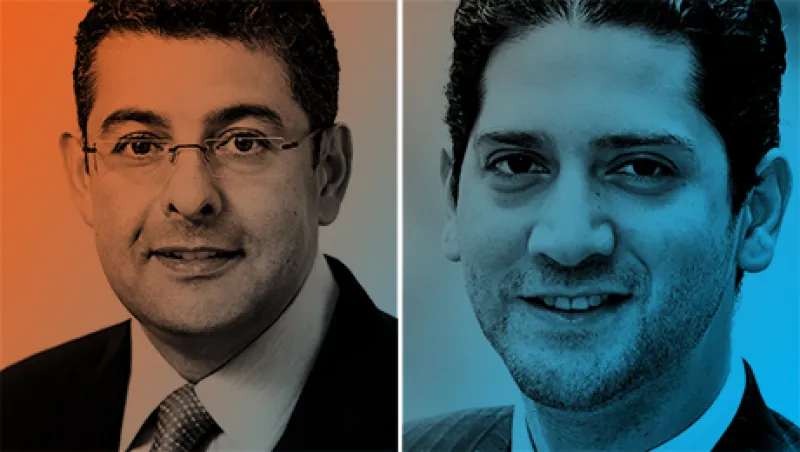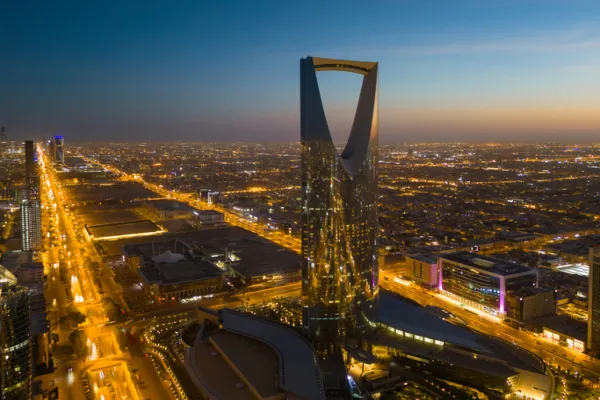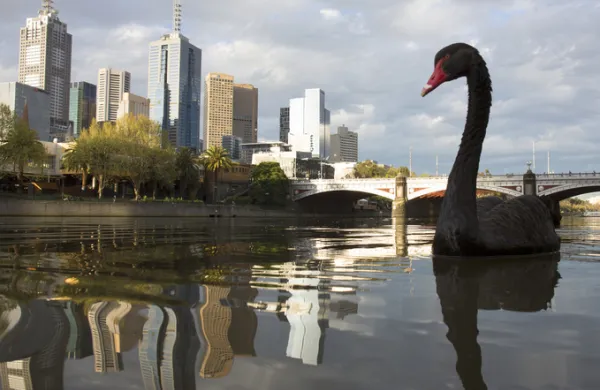The opening of Saudi Arabia’s stock market to direct foreign investment may be months away, but Middle East asset managers are already gearing up to capture the investment flows expected to pour into the Arab world’s biggest bourse. Their plans — from creating new Saudi-focused funds to establishing or expanding offices in the country’s capital, Riyadh — show they don’t want to miss any opportunities in the soon-to-open $543 billion emerging market.
“The opening up of Saudi will be a massive driver of capital into the region,” says David Marshall, senior executive officer of the asset management arm of Dubai-based Emirates NBD, the second-largest bank in the United Arab Emirates. “I think foreign investors would allocate money to regional managers. They will likely want to buy into those firms’ analytical and stock-picking expertise.”
The Saudi initiative, which was announced by the country’s Capital Market Authority in July, promises to sustain the expansion of the region’s young but fast-growing asset management industry. Funds managed by the Middle East 20, Institutional Investor ’s exclusive ranking of the region’s biggest investment managers, rose by 22.6 percent in the 12 months ended June 30, to $78.1 billion.
NCB Capital, the asset management arm of Saudi Arabia’s National Commercial Bank, keeps its spot at the top of the list with $15.7 billion in assets. It’s followed by Bahrain’s Investcorp Bank, which returns in second place with $11.4 billion in assets, and Dubai-based Abraaj Group, the region’s largest private equity firm, with $7.5 billion.
Although industry assets pale in comparison with the nearly $2 trillion managed by sovereign wealth funds of the six oil-wealthy Gulf Cooperation Council states — Bahrain, Kuwait, Oman, Qatar, Saudi Arabia and the UAE — retail and institutional asset managers are hopeful about the prospects for growth. Indeed, the number of asset managers in the Middle East, especially in the GCC, has increased significantly in the past few years, rising to as many as 170 firms from some 130 just three years ago, according to PricewaterhouseCoopers.
“This year’s fundraising has been driven, firstly, by wealth pools in the region widening and deepening,” says Ramzi AbdelJaber, managing director of corporate development and Qatar country head at Investcorp, a Bahrain-based alternative investment firm that has backed companies including Gucci, Tiffany and Saks Fifth Avenue. “Secondly, there is more investor desire to diversify away both geographically and by asset class. Also, investors are becoming savvier.”
Nevertheless, the road ahead is not without challenges for the region’s asset managers. In October the International Monetary Fund cut its 2014 growth forecast for the Middle East, North Africa, Afghanistan and Pakistan to 2.7 percent, 0.4 percentage point below its July forecast, and slashed its outlook for 2015 by 0.9 point, to 3.9 percent. The IMF attributed the lowered growth projections to political unrest and a weaker world outlook. Since that report came out, global oil prices have dropped sharply, dealing a further blow to regional economies and threatening to push government budgets into the red.
Growth has held up better across much of the GCC, where the majority of the Middle East 20 are based, but Kuwait’s Finance minister, Anas al-Saleh, warned in October that weak oil prices would force cuts in public spending.
Asset managers, however, are optimistic about the outlook. “The GCC has been a tremendous growth story over the past decade,” says AbdelJaber. “Businesses are growing tremendously. We are trying to capture a proportionate amount of that growth, whether on the fundraising side or the investment side. We are increasing our physical footprint.” Investcorp, which already has offices in Manama, Bahrain; Riyadh; and Abu Dhabi, UAE, plans to open another branch in the Qatari capital of Doha next year as well as increase the number of relationship managers on the ground in these cities and bolster its overall investment team in the region. AbdelJaber declines to give specific staff numbers.
For many fund managers, growth ambitions are focused on Saudi Arabia as they gear up to capture part of the anticipated influx of fresh money in the first half of 2015, when regulators plan to permit foreigners to buy and sell local stocks for the first time. Currently, foreigners — except for citizens of other Gulf states — can access the Saudi market only through swaps arranged by international banks and through a limited number of exchange-traded funds. Analysts estimate that foreigners own less than 5 percent of the Tadawul, as the equity market of the world’s largest oil exporter is known. But the potential for foreign investment appears bright given that Saudi Arabia has the Middle East’s biggest economy and its largest stock market, including top blue-chip firms like petrochemical group Saudi Basic Industries Corp. The bourse’s opening to foreigners should have an even bigger impact if it leads to the Tadawul’s inclusion in international stock indexes. MSCI has said it might add Saudi Arabia to its Emerging Markets Index in 2017 at the earliest; the Tadawul could account for some 4 percent of the index, which is the one most commonly used by emerging-markets funds and ETFs.
Saleem Khokhar, head of equities at the asset management arm of NBAD Asset Management Group, an arm of National Bank of Abu Dhabi, the largest lender in the UAE, says Saudi Arabia could attract between $35 billion and $40 billion in direct inflows should it gain emerging-market status. “We would look to establish an office in Saudi in the next two years or so,” says Khokhar, whose firm this year moves up one slot to tenth place in the Middle East 20, with $2.96 billion in assets. “We would have a locally registered asset management team as well as fund managers.”
Emirates NBD Asset Management, which returns in 12th place with $2.56 billion in assets, has launched a Luxembourg-based fund that will have a higher exposure to Saudi Arabia in a bid to lure international investors.
EIIB-Rasmala Group, a Dubai-based investment bank that holds the No. 15 slot in the Middle East 20, established a Dubai-based, full-time team in 2012 to speak with regional and international investors and pinpoint how the firm should position itself when the Saudi market opens up, says chief executive Zak Hydari. “We see many investors in the Middle East and North Africa wanting to do more in Saudi once the market opens up, and international investors fielding many more inquiries from as far afield as the U.S. and Europe or eastern countries,” he adds.
Investcorp has nine staff at its Riyadh office, which opened five years ago, and plans to “increase the staff significantly” for asset gathering and investments, says AbdelJaber. Investcorp has a total of $400 million invested in four Saudi Arabian companies, including a car rental company, a fitness chain operator and a gold and jewelry maker. For the firm, the opening of the Saudi market may make the bourse a “more attractive case for an eventual exit from our portfolio companies in the region,” he adds.
Some regional asset managers express skepticism about their industry gaining significant allocations from the upcoming Saudi Arabian move. Robert Pramberger, head of asset management at First Investor, the investment banking arm of Qatar’s Barwa Bank that occupies 14th place in the ranking, believes international investors are more likely to invest in Saudi Arabia through asset managers from outside the GCC. “Local asset managers will not see much of the inflow,” he adds. “The big European and U.S. asset managers will try to keep the money in-house, while maybe smaller non-GCC asset managers may wish to outsource this to non-GCC asset managers.”
Alongside Saudi expansion plans, some firms are looking for growth from tighter cooperation with the sovereign wealth funds in the GCC. Marshall from Emirates NBD says his firm manages some sovereign assets — though he cites a confidentiality agreement for declining to say whose — and that there is a “greater willingness” from such funds to have their assets managed by regional players. “A few years ago the sovereigns were not as bullish on the regional economies,” he says. “That has changed, and I am aware that we and a couple of our competitors have received mandates from sovereign wealth funds.”






